|
Hi everyone! As you know, I love reading fantasy and science fiction books, and there are some fantastic self-published books out there in those categories. I had the privilege of reading some of these books, and posting reviews of what I thought of them on Goodreads. If you haven’t read these books, and if you don’t know about these authors, you’re definitely missing out! Let’s celebrate some awesome books! Here are my top indie fantasy and sci-fi books for to June to December 2021! These books are in no particular order, however are broken down into several sub-genres to help guide you in your particular reading tastes. FANTASY SATIRE Title: Creation by Bjorn Larssen Why it’s so good: It’s hard for an author to make my list for top indie fantasy and sci-fi books for BOTH the first AND second half of 2021, but with first Children and now Creation, Bjorn Larssen has done it! The Pratchett and Adams comparisons you will hear when Larssen's name is spoken about with great esteem in fantasy circles is for a reason. Larssen is extremely gifted and if you have not read him yet, you really should! Creation is a triumph, and packs a huge punch for something you can read cover to cover in a couple of hours or less. Review Quote: “If after hearing all this, you think the novella Creation delves into Norse Mythology in a completely incongruous way, think again. This is part of the genius of Larssen, a man who knows his Baldrs from his Bragis. Larssen's research into Norse Legend is impeccable and meticulous. Just ask Steven T. Dunn, an educator with a Master's in Medical History and Norse Studies, who provides an endorsement for the novella. Larssen's hilarious take on the Norse creation checks all the "authenticity" boxes, including featuring first humans Ask and Embla.” GRIMDARK / GASLAMP FANTASY Title: A Foreshadowing of Darkness by T.B. Wayne Why it’s so good: The story centers on a religious group that is essentially a law enforcement entity, who serves and defends those under their protection. The group channels a mysterious, but generic magical power, however each member of the group wields the power in unique ways. The group employs a combination of martial prowess and magic to carry out their duties, and it makes for an exciting and compelling story. Review Quote: “First let me say that I was highly impressed with the writing and creativity of the author. The world designed was easy to conceptualize, and the character descriptions make them believable and quickly engaged the emotion of the reader.” Title: From the Darkness Comes by Joy Demers Why it’s so good: A well-written book that I enjoyed, and fans of fast-paced read with plenty of action sequences will definitely enjoy. Review Quote: “The prose and plot are straightforward and easy to digest. Demers spins an intriguing tale, with plenty of fight sequences, heart-warming camaraderie, roguish figures, mysterious goddesses, and of course the vengeful, broken Cadda and her eerie glowing eyes, as she is relentless in her pursuit of vengeance and to discover her mother’s whereabouts.” Title: Oathbreaker by A.J. Rettger Why it’s so good: Oathbreaker is truly the definition of a book one can't put down. Rettger does not permit the reader to take much of a breath, once the reader gets past a lengthy prologue, going from one incredible fight scene to the next! If there is one thing I cannot fault the author for, is his non-stop, thrilling action sequences. Rettger will have you on the edge of your seat, wondering what calamity is coming next for our hero and his companions, and if they can possibly make it out alive. Review Quote: “Rettger is obviously a highly talented new writer who will only get better, and readers looking for a very young Andrzej Sapkowski or Joe Abercrombie-type author would do well to check out Oathbreaker! I am definitely looking forward to the next book by Rettger!.” HIGH / EPIC FANTASY Title: God of Nothing: The All by Shane Scott Why it’s so good: God of Nothing: The All by Shane Scott is a psychedelic, heterogeneous, absolutely wild ride through an awe-inspiring universe, both celestial and mortal. It is a fantastic book, that has me still absorbing all its incredible aspects, long after I have finished reading it. Review Quote: “The book is filled with wit, even belly-laughing-type black humour, monumental fight scenes, tender, poignant and tear-jerking moments, terrible defeats, and dazzling triumphs. To say the characters are incredible is an understatement.” Title: Goldsong by Beth Hudson Why it’s so good: In Goldsong, Hudson has woven an inventive and distinct universe full of unique kingdoms, diverse peoples, deep and ancient magic, gods, demons, prophecy, magical instruments and weapons, and all the elements a reader would ever want in any fantasy novel. Review Quote: “If you enjoy an extremely well-crafted system of magic and magical elements, then you will certainly revel in Goldsong. While there is no real large-scale battle pieces in the novel, that certainly did not diminish from my reading enjoyment, as all the mythology and mysticism certainly compensated for the overall lack of war and battle-excitement.” Title: The Burden of Destiny by Laura E. Thompson Why it’s so good: Thompson’s debut is quite well-written and descriptive, the characters are heart-warming, well thought-out, and easy to root for, the world building is strong, and the magic system is interesting. Review Quote: “The book compares favourably, in my estimation, with work of the esteemed Terry Brooks of The Sword of Shannara fame: full of elves, sword and magical battles, scheming, and some surprising emotional depth. A warm and captivating YA high fantasy adventure story!” Title: In the Shadow of Ruin by Tony Dejabo Why it’s so good: A simply outstanding book, filled with political intrigue, tribal warfare with harrowing battle scenes, mysticism, and lore in the form of African mythology, impressive, atmospheric settings in ancient Nigeria, love, betrayal, and vengeance! Review Quote: “If you like your battle scenes explosive, your outcomes unpredictable, strong, and well-drawn characters, delightful prose, African lore sprinkled with a hint of the black arts as the magic system, then look no further! Dejabo is an author to watch, and I am very much looking forward to the next entry in The Fractured Kingdom!” FANTASY ROMANCE Title: Immortal Defiance by Laura Maybrooke Why it’s so good: Yes, there are some comfortable tropes here, but Maybrooke writes so well, you will forget about the familiarity of those tropes, and just be wrapped up in what is a great story. Review Quote: “I could rave about the awesome, intricate worldbuilding created by Maybrooke. There are great secondary characters, colourful warring factions, various races including dwarven, eleven, human, and dragon, unique nations, and a highly detailed and immersive backstory & history to it all, complete with dates of major events (which the reader will see during the headers for the flashbacks).” SCI-FI-FANTASY / SCI-FI / DYSTOPIAN Title: The Sequence by Lucien Telford Why it’s so good: Beyond exceptional characters, The Sequence has the best elements every popular sci-fi books needs: it illustrates the relationship between the characters and the future environment, and how that new-age environment impacts them; it explains the future technologies, systems, and how they operate in a way that is readily understood; and it features incredibly cool, sexy tech that is imaginative candy for the reader. Review Quote: “The Sequence is a gripping, flawlessly-paced, diverting, beautifully written action sci-fi thriller. This one is bound to garner many more great reviews, and I predict Telford is in for his share of writing accolades in the future. He is surely a great writer to watch.” Title: Nexus Point by K. Pimpinella Why it’s so good: Blade Runner. The Bourne Identity. Star Trek. If these franchises excite you, then Nexus Point by the outstanding author, K. Pimpinella, is for you! Review Quote: “The book is extremely well-written, with a breakneck pace. Action abounds, intrigue and secrets are always lurking around the corner. The fight scenes are excellent, and the author Pimpinella's experience and credibility as both armed forces veteran and paramedic are on full display. There is a sense of realism and urgency that Pimpinella's writing brings to the action sequences. The combination of old and future world settings, were fantastic, and Pimpinella manages to write so well that one never feels disoriented or lost at which slot in time the plot has landed.” Title: Keepers and Destinies by Carl F. Brothers Why it’s so good: Author Carl F. Brothers presents a fascinating tale of both celestial and human conflict in his debut novel “Keepers and Destinies”, that fans of the Rapture genre (such as I) will find thoroughly entertaining. Review Quote: “Brothers maintains the Christian perspective on an apocalyptic future, painting a dystopian landscape for humans, where God, though omnipotent, leaves the fighting to his Angelic hosts, and humans are largely caught in the middle of the conflict between good and evil. I absolutely love the risk-taking for debut authors to end the first book of a series on a cliff-hanger, and Brothers does with “Keepers and Destinies” leaving the reader craving for more.” ARTHURIAN FANTASY Title: The Secret of the Sword by Sean Rodrick Bell Why it’s so good: The Secret of the Sword features great settings, and interesting characters. Bell takes the reader on a sweeping ride, from modern locations in some of Canada's largest and most sophisticated cities, back to medieval Britain and the glory of mythic Camelot. The book provides a fascinating look at the larger-than-life characters from Arthurian lore, such powerful wizard Merlin, noble Uther, devious Morgana, and more. Review Quote: “Perhaps what I loved most about the story were the poignant themes. In the novel, Bell highlights the cost of being committed to a cause, the power of family bonds and special relationships, and how enduring love survives the grave.” YA FANTASY Title: Of Us and Them by T.L Coughlin Why it’s so good: Coughlin has composed a wonderfully detailed futuristic earth, replete with the cool gadgetry one expects to see in a sci-fi entry. With savoury descriptions and backstory that are never overdone, but tantalizing enough to give you the feeling of being with the protagonist, the action in the novel is poignant and the stakes are high. Review Quote: “Well fleshed out characters, salient reflections on broader themes, a dash of humour, burgeoning young romances, great diversity and LGBTQ + representation, make for an awesome YA novel. Of Us and Them has all these components, and much more..” Title: The Hidden King by E.G. Radcliff
Why it’s so good: I found myself stopping to re-read certain parts of the book, "smelling the roses", so to speak, as I savoured the delightful prose. Radcliff paints the world of the Gut so deliciously, so vividly with her words, including the sibylline "No-Man's-Land", that I felt I was right there, looking over vast expanses, uncharted lands, and imposing mountains. Review Quote: “Overall, this is a book that I loved, and after hearing nothing but good things about it, am so pleased all I heard proved to be true. I have already taken steps to secure the next two books in what promises to be an outstanding series, and give a resounding five stars for The Hidden King!”
0 Comments
Good day everyone and welcome to my blog for October 2021!
In my August blog post I promised announcements coming soon regarding A Drowned Kingdom and The Drowned Kingdom Saga. I am pleased to make those announcements now! The first announcement: A Drowned Kingdom is going to become an audiobook! A Drowned Kingdom should be released in audiobook format prior to the end of 2021! Deb and I always wanted to produce an audiobook and offer my readers the widest variety of possible options to enjoy my work. So, A Drowned Kingdom already exists, lovingly in eBook, hardcover, and softcopy, and will soon be joined by an audiobook version. I can think of no better way to convey the flawed, compelling voice of Lord Othrun, the protagonist from whose point of view perspective A Drowned Kingdom is written, than in audiobook form. Why else did the P.L. Stuart authorpreneur team elect to make an audiobook? Audiobooks are one of the most popular forms of book sales now. The audiobook industry is trending towards becoming a billion-dollar industry. Additionally, audiobook sales appear to boost physical book sales. If someone loves listening to your book, they may elect to purchase a copy for their bookshelves too, to add to their library. One of the fantastic advantages of audiobooks is that non-readers who have challenges or preferences for listening as opposed to reading can enjoy their favourite authors. Many people either dislike reading, find themselves too busy to sit down and devote time to reading a book in physical form, or have challenges such as vision-impairment or dyslexia that precludes them from digesting a book in that manner. From personal experience, Deb notes she would rather listen to a book than read one. She has an hour-long drive to and from work and consumes numerous audiobooks a year while in the vehicle on her hands-free device, and her time is otherwise unoccupied except for driving. Audiobooks are also a wonderful way to keep the author’s work instantly available and always in stock for readers. It may take a few weeks to receive a physical copy of a book. For some authors, their works become so popular that their soft or hardcover copies temporarily sell out in physical bookstores or even online. Yet, like eBooks, audiobooks guarantee the author’s book will always be ready for immediate purchase, just a few clicks away. So, get ready for A Drowned Kingdom, coming to your headphones or hands-free device, soon! Please check this website, or my social media pages such as @plstuartwrites on Twitter for updates on release date! The second announcement: Lord Othrun returns in The Last of the Atalanteans, Book Two of The Drowned Kingdom Saga, with an expected release date of Spring 2022! I am so excited to report that The Last of the Atalanteans has begun the publication process, with the final draft of the novel recently being sent to FriesenPress, to commence editing rounds. For those of you who have been waiting eagerly to see what happens to Othrun next, you won’t have to wait long! I feel confident that you will love Book Two of The Drowned Kingdom Saga. When we left off in Book One, by his own words, Othrun had truly put himself in the lion’s jaws. We’ll see if he, and those following him, can escape those jaws, or if they will be devoured! Book two was a joy to write, though I experienced some difficult moments during its completion with the loss of a dear relative and a beloved pet. Still, those I love who have passed would have wanted me to soldier on and complete the book, and that is exactly what I did. Frankly, there were other challenges in completing The Last of the Atalanteans. I have spoken to fellow authors, and most seem to agree that they have found book two in a series harder to write than book one. You take all the positives, any critiques, trying to demonstrate how one has improved as a writer since the initial book, and prove that the success of the first one was no fluke. The pressures and expectations one feels can be tremendous, but I persevered, and overcame them. Ultimately, I have striven to write the book I believe you as the reader will be pleased with the results, while still writing the story I felt needed to be told! I will keep everyone apprised as The Last of the Atalanteans nears publication date, with further intriguing updates, such as cover reveal, and launch of the book trailer! Please feel free to comment on this and future blogs and I will be sure to get back to you. Chat soon! Hi everyone, hope you are doing well! This month brings exciting news for me, as I am honoured to have become a member of the prestigious blogging team BEFORE WE GO BLOG!!! led by the incredible BETH TABLER!!! The team has some fantastic members under Beth’s leadership, including RYAN HOWSE, G.M NAIR, STEVE CALDWELL, ELENI A.E., DYLAN MARSH, JENNI BUCHANAN, MARIA BLACKRANE, WHITNEY REINHART, MISBAH QURESHI, BRIANNA SINDER, AND PHIL PARKER!
This is a new adventure in the journey of authorpreneur P.L. Stuart, as I enter the fascinating world of blogging! Some of you may ask, why become a book blogger, and what does it a book blogger do? Besides the awesomeness of Beth Tabler and the team she has assembled at BEFORE WE GO BLOG, what drew me into the world of blogging is my desire to support and uplift those in the writing community! The writing community includes authors, poets, book bloggers, book podcasters, literary agents, publishers, and many more. I have always wanted to make a positive contribution to this wonderful community, beyond writing novels, and blogging provides an excellent opportunity for me to enhance that contribution! One of the main functions of a book blogger is to help promote wonderful books! Bloggers accomplish this by reading and writing reviews of books that are of particular interest to either themselves or the blog they are associated with. This is all done for a love of books, and a genuine desire to bring exposure to the hard work of authors. Bloggers host or participate in blog tours and book promotions arranged for authors, conduct author interviews and spotlights, and other activities that generally shine a light on great books! Bloggers provide fair and honest reviews for authors. A blogger may not necessarily find a particular book to their specific taste, but they generally highlight the positive aspects of a writer’s work, along with any areas for perceived improvement. Even if a blogger did not enjoy a certain book for whatever reason, that does not mean that book may not be exactly what someone else wants to read! With a blogger getting the word out there about a book, it can potentially lead the perfect reader to that book! As we all are aware, reading tastes are very subjective, and it is not the blogger’s goal to turn readers away from books, but rather to turn them towards the books that are best suited to their reading preferences. Book bloggers are avid, voracious readers, who then commit their opinions about books to paper, for all to see. It requires a different sort of courage to be a blogger than an author of a novel, novella, poem, etc., but blogging still takes bravery and confidence in standing behind your thoughts on a certain work. Not everyone may always appreciate your input. The key is professionalism, integrity, and consistency in how you deliver feedback, and keeping it, wherever possible, positive! These traits will ensure blogging success and keep your personal enjoyment in being a blogger high! No point in doing it if it’s not fun! I love reading, and prior to becoming a blogger, knowing how much it means to author, I always tried to leave reviews of the books I read on platforms like Goodreads. Now I will be expanding where I leave my reviews, in being a member of BEFORE WE GO BLOG! Reading is an important component to becoming an even better writer, and I am always looking to continue improving in that regard. I’m looking forward to stepping up my reading and reviewing of some fantastic books! Please feel free to comment on this and future blogs and I will be sure to get back to you. Chat soon! Hi everyone! As you know, I love reading fantasy and science fiction books, and there are some fantastic self-published books out there in those categories. I had the privilege of reading some of these books, and posting reviews of what I thought of them on https://www.goodreads.com/. If you haven’t read these books, and if you don’t know about these authors, you’re definitely missing out! Let’s celebrate some awesome books! Here are my top indie fantasy and sci-fi books for January to June 2021! These books are in no particular order, however are broken down into several sub-genres to help guide you in your particular reading tastes. GRIMDARK / GASLAMP FANTASY Title: We Men of Ash and Shadow by H.L. Tinsley Why it’s so good: Already a 2021 SPFBO (Self-Published Fantasy Blog-Off) Semi-Finalist selection, this book has beautiful, haunting, descriptive prose, is brooding, melancholy, and creepy, and witty, ironic, tight and sharp. Review Quote: “What a smashing debut by Tinsley - kudos! She is assuredly destined for Grimdark royalty, and can’t wait for installment #2 as Tinsley continues to accumulate jewels to add to her tiara!” https://www.amazon.com/Men-Shadow-Vanguard-Chronicles-Book-ebook/dp/B08FJ6PY9M/ref=sr_1_1?crid=352AXNKX6G52F&dchild=1&keywords=we+men+of+ash+and+shadow&qid=1627711599&sprefix=We+Men+of+Ash%2Caps%2C325&sr=8-1 Title: The Legacy of the Brightwash by Krystle Matar Why it’s so good: This book transcends being a great read. This book has catapulted into my personal top one hundred books of all-time. Heart-stopping gun battles, MMA style pugilistic ring-matches, bar fights, throat-cutting murders, and that is just what the “good” characters are up to. Review Quote: “Legacy of the Brightwash deserves to win every award for best debut novel, best fantasy novel, best novel period for 2021 that I can think of.” https://www.amazon.com/Legacy-Brightwash-Tainted-Dominion-Book-ebook/dp/B08S3M3J9K/ref=sr_1_1?crid=32OSD96KLKRYD&dchild=1&keywords=legacy+of+the+brightwash&qid=1627712142&sprefix=The+Legacy+of+the+Brightwash%2Caps%2C192&sr=8-1 NORSE MYTHOLOGY / NORSE-INSPIRED Title: Hall of Bones by Tim Hardie Why it’s so good: The first book in The Brotherhood of the Eagle series will certainly only add to the current buzz around the sub-genre of Norse-Inspired fantasy. Remarkable read! Review Quote: “Hall of Bones is a vibrant, extremely well-written, and unforgettable debut in a series, that will have readers clamouring for the follow-up. Five stars glowing for Tim Hardie and his first installment of The Brotherhood of the Eagle.” https://www.amazon.com/Hall-Bones-Brotherhood-Eagle-Book-ebook/dp/B08NXZX6CZ/ref=sr_1_1?dchild=1&keywords=Hall+of+Bones&qid=1627713453&sr=8-1 Title: Children by Bjorn Larssen Why it’s so good: The book was even more spectacular than advertised. There is both light and grim humour aplenty in the book, it is overall a poignant and violently compelling read that is destined to haunt you. Review Quote: “In this case, words have failed me, and less is more when it comes to praising the masterpiece that is Children. I cannot say enough positive about this book. It is truly one of the best books I have read all year, amongst a lot of fantastic books.” https://www.amazon.com/Children-Norse-Mythology-Retelling-Worlds-ebook/dp/B08JVFSZZX/ref=sr_1_1?dchild=1&keywords=Children+Bjorn+Larssen&qid=1627713480&sr=8-1 ARTHURIAN FANTASY Title: The Ravenmaster’s Revenge by Jacob Sannox Why it’s so good: This novel was selected as a semi-finalist in the 2019 SPFBO (Self Published Fantasy Blog Off). A quick and entertaining romp, back and forth between ancient settings, and modern day ones. A classic good versus evil tale. Excellent read! Review Quote: “I completely adored Sannox's vivid writing, in terms of how he describes England, a place I have always longed to visit. Sannox captivated me with his expository prose. I truly felt I was strolling or driving through today's downtown, bustling London, or the quaint urban countryside.” https://www.amazon.com/Ravenmasters-Revenge-Return-King-Arthur-ebook/dp/B07S9GX59K/ref=sr_1_1?dchild=1&keywords=The+Ravenmaster%27s+Revenge&qid=1627713605&sr=8-1 Title: Queen of None by Natania Barron Why it’s so good: Who doesn’t love Arthurian fantasy, strong female characters, and a simply wonderfully-written book? This book has all that and more. One of my favourite books in this sub-genre. Review Quote: “Barron spins an intimate, spellbinding, first-person narrative, full of lyrical prose, mesmerizing characters of lore, especially strong women, and a unique perspective on the Arthurian sagas, in which portrays a voice unheard, far from powerless, and determined not to be forgotten, as was predicted, makes her presence felt.” https://www.amazon.com/Queen-None-Natania-Barron-ebook/dp/B08DK3791Q/ref=sr_1_1?dchild=1&keywords=Queen+of+None&qid=1627721838&sr=8-1 FANTASY-ROMANCE Title: Neglected Merge by Eve Koguce Why it’s so good: Neglected Merge is a fascinating novel, with a thought-provoking and original plot, outstanding characters, and amazing writing. Review Quote: “Romance is central to the book, and it is exceptionally well-executed. There are unexpected liaisons, surprise relationships, and passionate encounters that fans of the genre will adore. On the dystopian fantasy side, along with the excellent world-building, the political intrigue, and negotiations that take place between different elements of society, are extremely compelling.” https://www.amazon.com/Neglected-Merge-Fantasy-Utopian-Romance-ebook/dp/B092J7S3CV/ref=sr_1_1?dchild=1&keywords=Neglected+Merge&qid=1627786390&sr=8-1 Title: By Immortal: Honor Bound by Danielle Ancona Why it’s so good: Overall, I found it completely spell-binding, and representative of the best all of those genres have to offer, and that is no small feat for any writer. Review Quote: “I must begin a review of this book by stopping to pay homage to Ancona's prose. Imagine a glorious Monarch butterfly, with all its majesty and beauty, landing unexpectedly on your finger. You would barely feel its light touch, as its dainty feet keep it perched on your skin. But you would be totally entranced, transfixed by the brilliant colours, and wonder of its thin, elegant wings.” https://www.amazon.com/Immortal-Honor-Bound-Alchemy-Angels-ebook/dp/B08GR7MTYD/ref=sr_1_1?dchild=1&keywords=Immortal%3A+Honor+Bound&qid=1627786865&sr=8-1 HIGH / EPIC FANTASY Title: Voice of War by Zack Argyle Why it’s so good: SPFBO6 Finalist. Indies Today Best Fantasy. Independent Sci-fi Fantasy Author Battle Winner. BBNYA Fantasy Finalist. the list goes on of the accolades for this book. Enough said! Review Quote: “The plot weaves along at an excellent pace, with just enough backstory, immediate action, world-building, and compelling characters to keep the reader engaged. And if as a reader you require a magic system that is extremely well thought out and not derivate of any you have seen before, then Voice of War is your book!” https://www.amazon.com/Voice-War-Threadlight-Book-1-ebook/dp/B084F96GFZ/ref=sr_1_1?dchild=1&keywords=Voice+of+War&qid=1627786920&sr=8-1 Title: Fortune’s Fool by Angela Boord Why it’s so good: Well-deserved finalist in the 2019 version of Mark Lawrence’s Self-Published Fantasy Blog-off (SPFBO#5). Review Quote: “This was the “perfect” fantasy book for me. It was the ultimate, arbitrary, lucky match of my personal tastes as a reader paired with a writer’s personal choices for how they wrote the book. Just as the quote I took from the book above, Fortune’s Fool took me unawares, unexpectedly arrived and stuck with me, destroyed my carefully constructed reading plans, and now I’m here trying to write a review fitting of how much I fell in love with the book, rather than reading other books I promised myself to read first.” https://www.amazon.com/Fortunes-Fool-Eterean-Empire-Book-ebook/dp/B07ST8KQ87/ref=sr_1_3?dchild=1&keywords=Fortune%27s+Fool&qid=1627787037&sr=8-3 INTRUSION FANTASY Title: Quicksilver and Brimstone by Elizabeth Eckstein Why it’s so good: Make room intrusion fantasy royalty J.K. Rowling and Philip Pullman! There’s a new Queen aspiring to the throne, and her name is Elizabeth Eckstein! All hail!!! Review Quote: “ I owe Eckstein for restoring my faith in the whole sub-genre of intrusion fantasy. I had given up on literally HUNDREDS of intrusion fantasy novels, many dispatched to an uncertain fate (after barely escaping dreaded “DNF” status) banished to my donation bin, destined for dusty used bookstore shelves. Ever since the “Harry Potter” series, I had largely abandoned that sub-genre, never finding another work that could measure up for me. Until, that is, reading Quicksilver and Brimstone! This book is a simply stupendous work of intrusion fantasy & YA fiction!” https://www.amazon.com/Quicksilver-Brimstone-Crucible-Crimson-Lion/dp/B08CPLF56Y/ref=sr_1_1?dchild=1&keywords=Quicksilver+and+Brimstone&qid=1627787400&sr=8-1 HISTORICAL FANTASY Title: The Fires of Treason by Michele Quirke Why it’s so good: In The Fires of Treason, Michele Quirke’s debut novel, an unshakeable bond between royal brother and sister, a quashed rebellion, an illicit affair, a scheming sister, an abusive king, an assassination attempt, and more, make for a very well-written and involving historical fantasy. Review Quote: But there are so many more positives about this book besides the exceptionally-drawn characters. The writing is silky, immaculate. The themes presented in the novel were compelling. Gregory and Elizabeth are forced to confront moral questions about self-preservation versus life-taking, stealing versus perishing from hunger, and the benefits, disadvantages, and limits of absolute power. I found how they dealt with these situations, and how Quirke put her characters in these uncomfortable dilemmas, fascinating.” https://www.amazon.com/Fires-Treason-Michele-Quirke-ebook/dp/B08FDGY6C4/ref=sr_1_1?dchild=1&keywords=The+Fires+of+Treason&qid=1627787548&sr=8-1 SCI-FI-FANTASY / SCI-FI / DYSTOPIAN Title: Allegory of the End by A.R. Mirabal Why it’s so good: Watch out for this author. A.R. Mirabal is poised to break into the sci-fi genre, and he just might break it wide open. I can't wait to see what he writes next! Review Quote: “For, first and foremost, 'The Allegory of the End' is the first instalment in what will no doubt be a very well-read sci-fi series, and has all the bells and whistles in terms of fancy gadgets and incredible futuristic armaments that sci-fi readers crave.” https://www.amazon.com/Allegory-End-One-Death-Order/dp/1736920219/ref=sr_1_1?dchild=1&keywords=Allegory+of+the+End&qid=1627787820&sr=8-1 Title: Skyview: Lord of the Wills by M. Sheehan Why it’s so good: Readers will find it hard to put down Skyview: Lord of the Wills, with its stirring action sequences, engrossing historical perspective, and interesting characters. Sheehan has amazing storytelling and writing abilities, and Skyview: Lord of the Wills will take you as the reader to dizzying heights from which you won't want to descend! Review Quote: “I have never read a novel, prior to Sheehan's work, with such a completely fresh and original concept. Sheehan certainly knows how to please me as a reader, as he somehow deftly manages to weave three distinct genres - thriller, sci-fi, and historical fiction - into one captivating book. Since Sheehan accomplishes this genre-blending in seamless fashion, Skyview: Lord of the Wills feels like a mash-up of the Star Trek, James Bond, and Indiana Jones movie franchises. https://www.amazon.com/SkyView-Lord-Wills-M-Sheehan/dp/1525576062/ref=sr_1_1?dchild=1&keywords=Skyview+Lord+of+the+Wills&qid=1627788214&sr=8-1 SCI-FI-FANTASY / SCI-FI / DYSTOPIAN Title: The Scars of Gaia by R.P. Lauer Why it’s so good: Two things I absolutely loved about this novel: main characters and the foreboding that made me care about them. The sense of tension build up during the novel was compelling, and made me want to keep flipping pages. As James and Claire find out more about how their countries - and the greater world - truly operate, they uncover sinister elements that they must work together to confront. There is a real sense of dread, doom and something rotten hanging over the book. That sense of impending disaster is counterbalanced with the tender and pure relationship that blossoms between James and Claire, and the hope that their courage and humility can ultimately triumph. Review Quote: “Lauer pens a gripping tale, wonderful characters, and a fantastical world that feels like reality. The Scars of Gaia has a straightforward, seamless narrative that's sublime. Amazing read, and Lauer is definitely an author to watch!” https://www.amazon.com/Scars-Gaia-R-P-Lauer-ebook/dp/B0936G9K9J/ref=sr_1_1?dchild=1&keywords=The+Scars+of+Gaia&qid=1627788300&sr=8-1 Title: Dawnbreak by Rebecca Mickley
Why it’s so good: It is one of the most refreshingly unique books in the genre I have ever read. I was amazed by Mickley's ability to captivate the reader, and bring out strong emotions - I have to admit I reached for the tissue box at least twice during my reading. The mixture of angst, struggle, sadness, hope, and fulfillment that the author blended into this book is a potent one, so reader be warned, don't be surprised or ashamed if you shed a tear or two, as I did. Rest assured, Dawnbreak is a book you will never forget, in a very positive way. Review Quote: “Mickley's worldbuilding is top-notch, her writing is stellar, and her characters are so well-drawn that the reader cannot help becoming attached to them. There is gut-punching commentary on the state of human existence, relationships, and the future, that only a writer as skilled Mickley could pull off without sounding too preachy.” https://www.amazon.com/Dawnbreak-Farthest-Star-Book-1-ebook/dp/B07MCRVPYW/ref=sr_1_1?dchild=1&keywords=dawnbreak&qid=1627788766&sr=8-1 There you go! I will post my picks for the best in indie fantasy and sci-fi for the second half of 2021 in early winter of this year! Please feel free to comment on this and future blogs and I will be sure to get back to you. Chat soon! Hi everyone! Hope you are all doing well! I can hardly believe it’s already been five months since the release of my debut novel A Drowned Kingdom, Book One of The Drowned Kingdom Saga, on February 02, 2021! The time has flown by, and I have been extremely busy, however things have been fantastic!
For this month’s blog, I thought I would provide a quick update of my journey as an authorpreneur since publication and let everyone know some of the exciting things coming regarding me and my writing soon! How’s It Going? A Drowned Kingdom has been extremely well received since publication. Reviews have overall been quite favourable, sales have been strong, I am humbled by the generally positive response to my work, and extremely grateful to all the readers and reviewers who are responsible for all my early success. Thank you so much! It means the world! A “Get It” endorsement from the esteemed professional reviewing company Kirkus Reviews, and consequently being featured by Kirkus as one of ‘Four Great Examples of the Genre” for fantasy, in their April 15, 2021 Kirkus Reviews Special Indie Edition Magazine (page 9) was a huge honour. Receiving a Four out of Five-Star review from lauded professional review company Foreword Clarion Reviews was also great feeling. Currently, A Drowned Kingdom enjoys a four plus-star average rating on Goodreads and on Amazon. Several great fantasy bloggers have provided encouraging feedback, such as the wonderful reviewers Sue Bavey, Christine Bode, Jennifer of Queen’s Book Asylum, and Dawn Lewis, and Betanda Shaman. Special thanks to all the bloggers out there, and all the hard work they do. Immediately following publication, A Drowned Kingdom shot right to the top of the bestselling charts of the bookstore for the publishing-assist company, FriesenPress, and held that #1 bestselling ranking for two weeks in a row! Subsequently, A Drowned Kingdom received the honour of being named a FriesenPress “Staff Pick” amongst all their wonderful authors’ books. A Drowned Kingdom by P.L. Stuart | The FriesenPress Bookstore . Yet much more than any formal accolades, it is the feedback from readers who have appreciated my novel, that has meant the most to me, and warmed my heart immeasurably. It is an incredible feeling when someone genuinely enjoys reading something that has been such a personal labour of love. In the meantime, I have been working hard to promote A Drowned Kingdom, and The Drowned Kingdom Saga, through social media, engaging in media events such as book fairs, interviews, and podcasts. I truly have fun participating in such events, and I believe they are critical to author success. The work of an authorpreneur is never done, as writing books is only half of the equation. The other half is letting people know that your book(s) is out there. One of the best ways to accomplish this is through such media endeavours. Please feel free to visit my website Media page to see the latest for P.L. Stuart in the media and for media requests, please visit my Contact page. I also took a leap of faith and entered A Drowned Kingdom in Mark Lawrence’s Self-Published Fantasy Blog-Off, or #SPFBO7 as noted in my last blog post. Read here to learn more about that here Why P.L. Stuart entered "A Drowned Kingdom" in SPFBO7 - P.L. Stuart (plstuart.com) . A large part of that is increasingly becoming strengthening my connections in the wonderful #WritingCommunity, brainstorming, learning from and sharing ideas regarding writing and the writing business with fellow creatives, supporting and uplifting each other. Zoom conference calls with fellow writers across the world, direct message chats, and emails are a great way to allow these relationships to flourish via virtual means. Somehow, between all this exhilarating activity, and a full-time, terribly busy job, I have found time to work on writing The Last of the Atalanteans! More on that below! Suffice to say, the last five months have been some of the best months of my life, accomplishing the dream of becoming a published author, and relishing in all that comes with it! What’s Next For P.L Stuart? I will continue to focus on being part of a strong and innovative authorpreneur duo! First and foremost this means Deb – my lovely wife and business partner - and I strategizing together, on marketing, writing, and where to take our venture next! In this regard, working with the assistance of FriesenPress, we expect to be able to make some great announcements in the coming months about A Drowned Kingdom and The Drowned Kingdom Saga! Stay tuned! I am pleased to be participating in several media events over the course of the summer, including the Chatham-Kent Public Library Virtual Author Festival, a podcast with the wonderful Jeff Rutherford of Reading and Writing Podcast fame, When Worlds Collide Festival for Readers and Writers, and as a guest speaker to The Caribbean Fiction Book Club. August 2021 is also when I anticipate the final draft of The Last of the Atalanteans, Book Two in The Drowned Kingdom Saga, will be completed, and ready to go for professional editing. The goal is for The Last of the Atalanteans to be released approximately a year from the publication of A Drowned Kingdom, so readers won’t have to wait too much longer to see the next instalment in the epic adventure of #LordOthrun, Prince of the Atalanteans. Please feel free to comment on this and future blogs and I will be sure to get back to you. Chat soon! The 7th Self-Published Fantasy Blog-Off (SPFBO7) started June 01, 2021! And I am happy to announce that my novel A Drowned Kingdom, Book One in The Drowned Kingdom Saga, is an entry in SPFBO7!
SPFBO is an annual contest designed for English-language fantasy writers and readers. The patron and host of SPFBO is famous British Grimdark fantasy author Mark Lawrence. Mark has penned ground-breaking books such as the internationally best-selling Broken Empire Series. The opening book of the Broken Empire Series, Prince of Thorns, is one of my personal favourite top 100 books of all-time. And the protagonist of the series, I feel, is one of the most memorable - not to mention most controversial - fantasy characters ever written: the flawed, dangerous, and compelling Prince Jorg Ancrath. You can learn all about Mark Lawrence and his outstanding books here: https://www.marklawrence.buzz/ Altruistically, although he is heralded world-wide as a traditionally-published fantasy star, Mark Lawrence created SPFBO. He wanted to design a vehicle for his self-published brethren, so we may potentially one day acquire the sort of success he currently enjoys. The purpose of the SPFBO contest is to shine a light on self-published fantasy books, promoting the fact that there are more than solely great traditionally-published literary works in the genre. SPFBO is a phenomenal opportunity to increase the credibility and visibility of self-published fantasy books. Read about SPFBO, its rules, and why you, a self-published fantasy author, should consider entering here: https://mark---lawrence.blogspot.com/2018/06/the-official-self-published-fantasy.html Here is how SPFBO operates: fantasy novels are submitted by their authors to the SPFBO website. Then the novels are distributed to 10 prominent fantasy blogging sites (who are essentially the judges) for review. 300 books maximum are selected, based on a first-come, first-serve basis. The books selected are divided evenly amongst the blogging sites. So, each blogging site has a pile of 30 books to review. Next, each individual blogging site has the task of choosing ONE finalist from among their 30 books. Thus, there are a total of 10 finalists. Then, those 10 finalists are subjected to further scrutiny by ALL 10 blogging sites. The overall winner of the contest is the finalist amongst those 10 who receives the highest average review score received from the blogging sites. Despite the immense celebrity of the host Mark Lawrence as a top fantasy author, and all the acclaim the contest has garnered to-date - surprisingly - many self-published authors I spoke to had never even heard of SPFBO. Since there are many wonderful awards and prizes open to independent authors, I suppose even one so prominent as SPFBO can escape attention. Still, I can think of no more prestigious and impactful award out there right now in the world of self-published writers than SPFBO. The ability to have top bloggers review your work cannot be understated. The potential for increased sales due to exposure from the contest is considerable. Some independent authors have even found agent or traditional publishing contracts specifically because of their success in SPFBO. SPFBO6 winner Justin Lee Anderson, author of The Lost War, recently signed with Ian Drury of Sheil Land Agency, on the heels of his big victory. The main benefits I personally saw from SPFBO were the collecting of reviews from distinguished bloggers, gaining of awareness of more great fantasy books, the incredible contacts and connections to be made with more people in the writing community, and the sense of camaraderie and fellowship that participating in such an event would bring. SPFBO is not a traditional literary contest. One doesn't just typically submit their entry, and forget about it, until winners are announced. It's a special, often once-in-a-lifetime experience for an author, and it can be a great bonding experience to be shared with fellow entrants. There is a real hype and buzz about SPFBO. It is a year-long contest, where there are seemingly endless social media chats and groups devoted to analyzing and exploring the works of all 300 entrants. Entrants themselves form their own groups to get to know each other, support each other, brainstorm about writing, get writing feedback, do cross-promotion, and more. Most of the eyes of fantasy bloggers, and fantasy indie writers who are not even participating in the contest, are squarely trained on SPFBO for a good portion of the year. There is even an awesome cover competition as part of the contest http://mark---lawrence.blogspot.com/2021/05/spfbo-7-cover-contest.html! And believe me, there are lots of fantasy readers doing the same! Particularly once the ten finalists are announced! Then the attention becomes even more intense! And even as the winner is about to be announced, the hype starts all over again for the next contest!!! The entire fantasy community really comes together for it. Blogger, authors, readers, and many stakeholders in the self-publishing industry chat, get to know each other, uplift each other, and learn about wonderful authors and phenomenal books that otherwise may have conceivably gone more unnoticed. I felt SPFBO was too great an opportunity to pass up. Many of us in the self-published community struggle to get our books reviewed by anyone, much less top bloggers. In one of my previous blog posts about why I sought professional and peer reviews, I emphasized how critical reviews can be to the success of any author. Even non-flattering reviews are important. They provide essential feedback that can potentially help improve your writing. Or these types of reviews point others who might enjoy your book more, in the right direction. And while of course being judged by bloggers can be scary, I have a lot of confidence in the blogging community. Having followed most of the bloggers on social media well before I even published A Drowned Kingdom, and before I knew they would be SPFBO7 judges, I knew they were top notch professionals. They deserve a lot of credit. They do a very crucial and sometimes arduous job, for free. My experience is that they do it as professionally, objectively, and compassionately as possible. You may get an endorsing review, or a not-so-positive one, but you are absolutely guaranteed a FAIR one. That is all a writer can ask for. And typically, that means that the bloggers will highlight great aspects of your book that will help market it to the world, even if it was not their cup of tea overall. So, I took the plunge, and resolved to enter my book into the contest. Yet before I decided to submit my debut novel, A Drowned Kingdom, for SPFBO7, I also decided that it would not be as worthwhile if I did it in isolation. I knew so many fantastic authors whose works deserved recognition, but who had struggled to obtain reviews and attention. What better way to address this issue than to enter SPFBO? Moreover, I wanted to see contestants boost, support, and motivate each other. Such competitions, as beneficial as they are, can be tough on one's psyche. Make no mistake, it is always tough when your book is subjected to critique, much less when the eyes of the fantasy world are watching! Odds are, unfortunately, for most writers that enter SPFBO, that we are not going to make the finals. But the advantages to entering, as I outlined above, were so tantalizing, irrespective of winning, that I strongly encouraged a group of my writer friends to enter the contest too. I formed a Twitter group so that several writers could share information on entry rules for the contest, updates on submission deadlines, and general chatter about SPFBO. That led to another awesome writer creating a Slack group for the same purpose, and then many of us joining a much larger Discord group devoted to the contest. Again, all these groups with the purpose of informing, networking, supporting, uplifting each other, and chronicling our journey through SPFBO. And, it is also to have fun, and celebrate being part of it all! Enjoying the moment, and the privilege of being able to be a published author, and enter contests such as SPFBO, is important! SPFBO may be a contest with only one winner, but we who have entered are determined to make it a collective effort, and collectively celebrate one another's successes, and raise each other's spirits during the difficult moments. The writing community is an awesome, collaborative, kind, and reassuring place, and we ultimately succeed together, not alone. So fellow authors, let's cheer each other on, even while we dream of individual SPFBO glory! Readers, check out all the mind-boggling books of SPFBO, at the Goodreads Listopia listings. Part 3 of those listings is where you will find A Drowned Kingdom! https://www.goodreads.com/list/show/162631.SPFBO_7_2021_Part_3 Please feel free to comment on this and future blogs and I will be sure to get back to you. Chat soon! Greeting everyone, and welcome to my blog for the month of May!
I wanted to speak a bit about social media in this blog. I especially want to chat about Twitter. Twitter is is my preferred social media platform. However I feel compelled to take a semi-hiatus from Twitter to finish writing the next book in The Drowned Kingdom Saga, called The Last of the Atalanteans. This is the first break from Twitter I have taken. I never thought I would need to take a break from something that I receive such pleasure and gratification. I remember first joining the Twitter #WritingCommunity. I quickly found that everything I heard about #WritingCommunity is true – it is simply the best group to be found anywhere in cyberspace. Once realizing how privileged I am to be a part of such an awesome group of creatives, I resolved to being an upstanding member of the community. Vigorously, I continue to work at being a contributor to the welcoming, positive space that includes so many kind, generous, and talented people. I am determined to spend the bulk of my time uplifting and boosting others, and their work, rather than my own. It’s not to say I didn’t self-promote. Of course I am doing that too, and lots of it. But I feel so much better and receive so much more enjoyment out of re-tweeting the amazing works of other creatives than plugging my own work. It's so good for my soul, constantly retweeting pinned tweets of these incredible writers, poets, and artists. I believe that is the path to true happiness and success, because in the end, none of us in #WritingCommunity are competing against each other. So many others seem to share this view. We are altruistic people. We are all about assisting each other. And everyone always pays it forward, which in turn just increases the success of those around us. We rise together as a community. We succeed together! Such an astounding thing to be a part of! The solidarity, the support, the love. It's so addictive. I feel exhilarated! A few times, different friends message me and said they believed I helped them get a sale. What an incredible feeling! I know that the tweets of other friends who boosted me, help me sell books too, for certain. I am so grateful! We are selling books on Twitter! Unbelievable! Even better, we are helping readers find paths to works of other writers. Its amazing! There are so many benefits to being on Twitter! So much more than selling books, it's all about the sense of belonging, the camaraderie, the genuine connections made! The tips and wise advice from veterans in the industry, the brainstorming of ideas, the valuable nuggets of information about writing and publishing, it 's irreplaceable! Yet, in all this great activity, something was changing for me. I started to feel anxious about missing out on any acknowledgement directed my way, or any tweet where someone took the time to include me in a lift or boost, or thank me for something positive I did, or praise my book. I'm horrified to think I didn't manage to respond to someone who devoted time out of their busy day to mention me. I spent hours and hours desperately trying to catch up on the Twitter notification feed, and the mentions, and respond carefully to each tweet directed my way, even if it was part of an exceptionally large group who were noted, not just me. I was plagued by extreme guilt that I missed someone’s uplifting post, or celebration of their birthday, book launch, or other significant event, that I was not there to congratulate them, help promote their book, or share in their good news. I was heartbroken at missing a tweet by someone who was feeling down, and posted they were struggling, and not being there to help pick them up. So I simply re-doubled my efforts to be caught up on everything. As I began to follow more and more people, and in turn gain more followers, it became so much more challenging. But I wouldn't be defeated. I kept going. Soon I was spending more than three hours a day on Twitter. Then six hours. Then, sometimes on days off from work, eight to ten hours. But I was keeping up! I was responding to almost every tweet, every writer’s lift, every mention! I was there for those who needed people to lean on, and to comfort them. I was able to acknowledge all those who put me on lists of people they cared about and tweet out lists of all the fantastic people I cared about. I was able to help new people coming to Twitter, welcome them to the wonderful #WritingCommunity. I catching the tears of joy when someone published a book, crying with them, help to spread the news to cyberspace, and hopefully help them gain more exposure, and more sales and followers. I got to laugh with my friends at all the funny memes and engage in all the witty banter! I was doing it! I was keeping up! I was having a blast! Until I crashed. Unfortunately, excessive time on social media according to some studies has been linked to developing depression. I start feeling down. Twitter isn't as enjoyable as it was before. Combined with a hectic and sometimes stressful career, the enormous time I' m spending on Twitter, the pressure I'm feeling to keep up, slowly begins to affect my mental and emotional health. My wife notices what was happening and is concerned. When your partner, the person you trust most in the world, tells you something, you listen. She tells me keeping up with Twitter is becoming an obsession. She's right. We discuss what to do. One of the scariest aspects was that my writing is affected. I'm not being productive in getting my next book done. I 'm not feeling inspired. Even when I step away from Twitter, I have little desire to write. I'm always worried about getting back on Twitter and missing out. My goal was to always write a better book than the one before. My devotion to Twitter was jeopardizing that goal. I am enjoying some initial success with my first book, which I'm proud of. But I'm not going to continue to achieve my goals in the writing world unless I do something drastic about Twitter. After conferring with my wife, I decided on a hiatus from Twitter. I believe that staying off the feeds, for the most part, was the key to staying sane and healthy. Like most users, I already have timed tweets, both to promote others, and myself. I keep those in place. I feel that I can keep up on DMs and be available if someone needs me, personally or for business reasons. I always want my DMs to be open. I'm a person who cares about people, and cares about being approachable and helpful when I can be. I always planned to proactively check in on my Twitter friends, via DM. These people were way too important to me to not touch base when I can, and I miss them horribly. I've formed genuine, devoted friendships with some amazing people, and they are as dear to me – though I had never met them beyond virtually – as other friends I have physically met. So, with my plan in place, I withdraw for the most part from the main Twitter feed. I still do those check ins, to see what was going on, from time to time. I still follow back followers and seek out new creatives to connect with. I also periodically respond to tweets when I can. Otherwise, I simply stay off Twitter. At the onset of my hiatus, it feels very strange for a week or two. I go through a difficult withdrawal period. I'm missing out on the interactions with all my Twitter friends. I'm missing out on all the motivating words, the fun, the fellowship, everything. Then, things get better. I start feeling better. My inspiration to write cranks up. I start to writing more and more. My mind feels freer, clearer. The writing time regained cannot be understated. I'm back to having bursts of maniacal writing, which is generally how I write. I'm back to my more normal exercise routine. I'm stunned to find my overall mood, emotional, and physical health was improving by spending less time on the main Twitter feed. I've became more productive at my non-writing job too! Besides the significant uptick in my writing, I'm using that time off the main feed to find different ways to interact with some of my amazing friends I made on Twitter. I always preferred having Direct Message chats or participating in writer’s groups – which are essentially group DM chats. I also have more time to devote to other social media platforms – again more group type chats – like Facebook, Slack, and Discord. I only am on those platforms periodically and have learned my lesson from Twitter. I only have so much time for social media, and I spend much more time living the rest of my life, especially writing, which is why I wanted to become an author in the first place. Perhaps one of the most worthwhile and enjoyable things that I now engage in more often is chats over Zoom with some of my new Twitter friends. The pandemic has forced us apart and lost us so many beloved people, but Twitter has gained me more people I care about, and I was determined to forge lasting bonds. We may be denied in-person visits, due to distance and COVID-19, but we can see each other on the computer screen, and share a smile, a laugh, and a virtual hug or high-five. The feeling of finally chatting via video with people one has become so close with online in #WritingCommunity is a fabulous one. It has been one of the highlights of my hiatus so far, as I can allocate time to do this. I may have taken a hiatus from Twitter, but I'm determined not to lose out on the most important element of Twitter that I gained from being on their in the first place, and that is the outstanding people that I met, and became friends with. I know definitively when I've completed the final draft of The Last of the Atalanteans, and I'm ready to return from hiatus to Twitter, I will have to do things differently. I'll have to schedule my time on all social media platforms more sparingly, especially Twitter. Twitter will always feel like a second home, and I love the people there in #WritingCommunity. They will always be important to me. But to be a better friend to them and others, and better husband, father, and writer, I need to be well. Part of that wellness is limiting social media time, to get other tasks done, do self-care, and reconnect with the world beyond the social media sphere. So my message is, don’t hesitate to take a break from Twitter or any other social media, if you discover that you need it. It will be there, along with some of your favourite people, waiting for you, when you return. Please feel free to comment on this and future blogs and I will be sure to get back to you. Chat soon! Hello everyone, and welcome to my blog for April 2021
Many people have spouses who are extremely supportive of their writing career. These partners take on additional chores, child-rearing duties, extra employment, and more. All these sacrifices are made to support the other partner who is writing, in order to facilitate the creativity of their spouse. Some even elect to pair with their spouse to help advance their writing careers. Such couples may have one or both partners who are writers, but work together to advance whatever creative work is being produced in the household. Sadly, there are also authors who do not have quite the same level of assistance from their loved ones. This can be for a variety of reasons, and not necessarily because the other spouse does not want the best for their creative partner. For example, sometimes due to the nature of the other partner's work and commitments, they are unable to lend help. I have even heard the rare, and unfortunate stories of authors who have family members that are ambivalent at best, or negative at worst, towards their writing aspirations. I am extremely grateful that my lovely wife, Debbie, backs my work completely. Moreover, she has elected to partner with me, to create a wife-husband author duo. One of the senior project members - and a valued friend - at my Indie Publisher FriesenPress, has affectionately dubbed Deb and I their ' favourite author couple'. I love that title, because very few experiences can be more rewarding than teaming up with one's spouse to create magical, fantastical novels, and ensure those novels reach the hands of those who would want to read them. I said truthfully in the acknowledgements portion of A Drowned Kingdom, where Deb was the second being I thanked after God: ''...My lovely wife Debbie, who is my rock, my world, my everything, my sole business partner in authorpreneurship, my corporate manager, marketer-in-chief, editor, confidant, and so many other jobs that it would take another novel to describe them all...'' Deb is the better half in our marriage, and in our Indie author business. She has a background in marketing, and is extremely savvy with her organizational and promotional skills. She keeps us in order, on budget, and on mission. She takes care of so many critical details of our business, in order to free me up to engage more in the writing-related activities, including actually writing. She is entirely indispensable as a wife, and as a business partner. Her value extends into the realm of my writing too. While Debbie is not an author herself, nor an editor, she is very much my primary point person for editing. I have a wonderful, professional editing team at FriesenPress, including the incredible Janet Layberry. But before any final draft of mine gets into the hands of FriesenPress and Janet, the first person my novels must meet the approval of is Deb. She has a very discerning, critical eye, and is highly intelligent. She can also be very frank in her feedback. Perhaps most importantly, she is not my target audience. Deb does not typically read fantasy by choice. It is not her preferred genre. So for her to enjoy a fantasy novel, it has to meet some fairly high standards. I believe that is a distinct asset when it comes to writing The Drowned Kingdom Saga. Having Deb read and critique my work is all about trust. I implicitly trust Deb, with my life, my love, and my writing. That level of complete trust I have for her allows me to have faith that Deb will provide me with at least an indication of something being ''off'' with passage or plot line or writing device that is part of my work. More often than not, Deb provides very specific input about what she feels needs to be addressed. On occasion, she does not. She merely notes ''fix it'', or ''rework it because I don't know exactly what is wrong here, but something is.'' Then I go back to the drawing board and reread. More often than not, I see what she is referring to, even though she only articulated in a very blanket fashion that something was amiss. I then rewrite the sentence or paragraph, and usually, Deb gives that satisfied nod of concurrence. And of course, there are times that I defend something that Deb does not agree with, and I stand by my opinion. I trust Deb, but I also trust myself, my writing skills, and my vision for the story. And, once we have a discussion about it, typically Deb agrees. In the end, we both want what's best for my writing, and to produce a quality book that others will enjoy reading. So there is no room for egos, or taking things personally. I can't only be seeking the acceptance of my wife - the most important person in the world to me, whose opinion matters the most - when I write books. I should not be only wanting to hear what she likes about the book - that's not seeking writing advice. At the same time, I have to have confidence in what I know is good about my book. I need to keep those good things I firmly believe in that are integral to the story, untouched. For example, I may have an idea about why a certain character would react a certain way in a given situation. Deb may see things differently, and in retrospect, I end up agreeing. Or, because no one knows my characters like I do (even Deb) I remind Deb of an element of that character's backstory as to why they would act in that way. Then Deb immediately sees where I am coming from, and endorses what I am saying completely. I fully look at working with Deb on the editing part of my book as a unique and very satisfying collaboration. Ultimately, there is also alignment. Deb and I may not like the same type of books, or the same type of prose or structure, but we are completely in agreement on many of the aspects that make a book well written. Before a book in The Drowned Kingdom Saga makes it to the initial editing round, Deb and I move forward as a unified team, agreeing that the book is good enough to start that final editing process. And of course, it is not just editing, where Debbie and I can have divergent views. Running any business, partners can sometimes have conflicting ideas about where to take the enterprise, in order for the betterment of the organization. Being an Indie author couple has involved incorporating a business, tax laws, copyright laws, working with our Indie publisher on editing, print, pricing and a host of other issues, liaison with bloggers, podcasters, reviewers, book fairs, newspapers and other press, libraries, book distributors, dealing with reader inquiries, booking speaking engagements, management of website and social media, and so much more. It is virtually impossible to agree completely on all those aspects. Yet, we always find a way to common ground, and alignment, for the benefit of the collective. As a result, we have enjoyed some early success with our partnership, including the sales and exposure of A Drowned Kingdom to a wonderful audience of readers. But there is endless work to be done, to continue to build on that success, and continue to reach for new heights. I am so honoured I will be able to do that in tandem with my amazing wife. It makes me savour the efforts, and the journey, that much more. In the end, it's all about our authorpreneur business succeeding. And, to that end, we provide each other with unconditional trust and love, and offer our talents to each other, and the business, unreservedly. Please feel free to comment on this and future blogs and I will be sure to get back to you. Chat soon! Welcome to my blog post for the month of March 2021. I wanted to begin by saying how humbled and appreciative I am by the initial response to my debut novel, A Drowned Kingdom. To reach the top position on the best-selling lists of my Indie Publisher, https://www.friesenpress.com/ , for the first two weeks following the February 02, 2021 release day, was spectacular, and a proud achievement for me! All of the positive reviews, and kudos I have received, have meant the world, to know that people are enjoying the book. I would like to say thank you to all those who spent their hard earned money, and valuable time, to buy and read my novel.
Along with all the kudos I have received, as anticipated, there appears to be much speculation, fascination - even angst and horror - about the novel's protagonist, Lord Othrun, Second Prince of the Atalanteans. It would seem that, while they love the book, my readers either personally love Othrun, hate him! Or love to hate him, I am not sure which! I certainly understand this phenomenon. After all, I wrote Othrun a certain way. I fully anticipated such a reaction. I would like to take the time to explain a bit about why Othrun has been written that way, and thus why my readers have found him so compelling, even if they don't necessarily like him at all! Make no mistake, Othrun is the hero of the story of A Drowned Kingdom. I've done several interviews prior, and since the release of the book, and in those interviews I made a point of noting that Othrun is the "flawed" hero of the story. If you've listened to any of those interviews, it should be no surprise to you that Othrun, from whose first person perspective comes the narration for A Drowned Kingdom, has lots of issues. But this is not uncommon for fantasy stories, or any stories for that matter, if we truly consider what makes a great story. Typically, at the start of many novels, the heroes or heroines are in trouble of some kind. They are either bitter, facing doubt and dismay, or lacking personal growth or development that is hampering their lives, or effectiveness to achieve their aspirations. At times, they even enter the story with a set of inaccurate beliefs about themselves, others, or the world surrounding them. These preconceived notions are frequently swept away, as the protagonist navigates through life, learning about things, gaining wisdom and experience. Yet, that's what titillates readers, as they see the protagonists grapple with their issues - many of them self-created - and try to overcome them, to grow, evolve, and succeed. Moreover, if a protagonist is to be believable, they must appear human. To be human is to come with a myriad of faults, foibles, and eccentricities that everyone has. If those don't show up in the story, it can rob some of the credibility from the writing. Readers, including fantasy readers, are intelligent and discerning. They demand realistic world settings, and realistic characters for the novels they deign to read. Fantasy authors need to give that sense of realism to their readers, if they want to be read. We are all flawed humans. Thus we know, as flawed people, we have a propensity to make tons of mistakes and bad choices. So it's realistic when we see Othrun make his share of those too, in A Drowned Kingdom. Still, for many reasons, those who perhaps did not revel in Othrun in the beginning of the novel, may come to appreciate how he is able to apply logic, in order to mitigate his errors, as the pages turn. Readers have commented on Othrun's ability to reason and potentially be very open-minded and accepting, as the novel progresses. He doesn't always consistently exhibit those positive traits, and it's never a complete about-face from his core beliefs. That in itself, is realistic. People typically don't just change overnight. To paraphrase what one reader said to me about Othrun, "I don't like him, but I have potential to like him, because he has potential to be better. He has to do better, before I can like him." More important, perhaps, than liking Othrun, is attempting to understand him. This is especially critical when it comes to Othrun's backstory. Because of the first person narrative, the reader is in Othrun's head, and is permitted to go back in time and see episodes from his upbringing. The reader has the advantage of viewing some of what has made Othrun the way he is, including his emotional scars, tastes, and how his current beliefs and personality have taken shape. One can see why some of Othrun's flaws have manifested the way they have, and how it guides his thinking on matters where he must make decisions. And because Othrun's flaws can compromise his decision making, this also helps the reader comprehend how he interacts with other characters, and the friction that can be created when Othrun and others disagree. The other characters interacting with Othrun have flaws too, and when these opposing flaws clash, it can create a lot of friction and tension. And who doesn't love a little friction and tension in a novel? One might argue, that's what makes a great novel! On the back cover of A Drowned Kingdom a line reads, "Othrun will be forced to confront the truths of all he believes in on his journey..." My protagonist, Othrun, will undergo a journey where he’ll evolve, change, and shape a continent. He’s not always likeable. He’s a snob, bigot, is vain, yet struggles with confidence. He’s patriarchal. He's a misogynist, and he is intolerant of the religions of others. Overall, he’s extremely flawed. But even ordinary flawed people can change. We’re all redeemable. Ordinary people can change, evolve, and make a difference, not just fictional Princes. I want that message to shine through my work. I believe as Othrun's journey continues throughout The Drowned Kingdom Saga, readers will enjoy the completion of his character arc, as he strives to overcome his flaws, overcome his fears and prejudices, and tries to reach a place of greater insight. All this, on his route "...to become a king, and a legend." That journey towards a hope of greater insight will continue in 2022, with the debut of The Last of the Atalanteans, the next chapter in Othrun's story. Please feel free to comment on this and future blogs and I will be sure to get back to you. Chat soon! PART TWO OF: WHY P.L. STUART SOUGHT PEER REVIEWS and PROFESSIONAL REVIEWS FOR “A DROWNED KINGDOM”2/1/2021 Hi everyone and welcome back to my blog post!
Here is part two of the blog I posted last month about the value and impact of author reviews. In January I spoke about seeking professional reviews. Now, I will conclude the topic, speaking about author peer reviews. I mentioned last time that, regardless of whether we love it or hate it, we need the opinions of others, in many respects, to help validate our work. I noted that sales and critical acclaim are the two main indicators of your book being “successful” in the general definition of how many of us creatives define “success”. Of course, we, of all people, as writers, must first love and appreciate our writing. We must be satisfied with the fact we have accomplished something very few people ever achieve – publication. Yet, many of us strive for even more. We want those big royalties coming as a return on investment, especially for those of us who have spent considerable monies on self or Indie publishing. We are human and desire the praise of others to affirm that our work is worthwhile reading. And those praises, coincidentally, in sufficient amounts, can help drive sales. Professional reviews are ones paid for by the author, to an organization, typically one with some measure of perceived influence, to have an honest review completed. Peer reviews are where an author seeks the candid feedback, and hopefully endorsement, of a fellow author, about their work. Personally, I found the peer review process far more stressful! It’s one thing to have complete strangers, who are paid to do reviews, and detached from you and your work, to provide their opinion. It’s another to have the prospect of a peer, whom you know, like, and respect, potentially think your work is garbage! Yikes! Talk about nerve-wracking. Yet, I spoke to the dichotomy, in the last blog post, of needing to put your work out there, if you want your profile to be raised. So, prior to publication, I gave copies of A Drowned Kingdom to fellow authors whose work I so greatly admired, and whom I highly respected as wonderful people. Two of those writers whose reviews coincided with release of A Drowned Kingdom, were the amazing Elizabeth Eckstein, author of Quicksilver and Brimstone, and the incredible Matejs Kalns, author of Beasts of the Night. I must be honest, it was intimidating having two formidable, established writers, read A Drowned Kingdom. I have read both Quicksilver and Brimstone and Beasts of the Night, and they are both phenomenal novels. I was unsure how my work would measure up to that of such esteemed creatives! There was quite a few nail- biting days, waiting for feedback! I am pleased to say, they both enjoyed reading A Drowned Kingdom! That said, one of the authors, who is another fantastic writer, did not like my work. I truly value his opinion, and I learned that A Drowned Kingdom was not for him. It was not the type of fantasy book he preferred, and my writing style was not a fit for him. In these cases, you very much should take any constructive feedback from your peers under advisement and consider the merits in terms of things you could potentially change or improve in your work. Ultimately, receiving this feedback was certainly as critical as receiving praise! Moreover, it helps steel oneself against the inevitable fact that, not everyone will like your book, and that’s OK! Not every blogger, professional reviewer, fellow author, or reader will end up falling in love with the book you write! That’s the beauty of reading a book! Everyone will see different things they like, or dislike in a book, and preferences for books are as highly subjective and individualized as the people who read them. Life would be quite boring if everyone liked the same things, including the same books. Nor would there be much room for growth, and development, if no one said anything that could potentially be construed as negative about your book! My advice, take any such feedback graciously, as the person took the time to read your work, and NEVER lash out or be rude towards someone who bothered to provide you with input. Absorb the input, consider any merit, and continue forward. I will provide some of the praise for my book, as it will appear in the inside page of my novel, that is dedicated to reviews, from Elizabeth and Matejs, here: “Richly detailed, Stuart draws you into a land of bitter rivalries and political intrigue, a novel of pure escapism…Not only does Stuart conjure a vast kingdom in vivid detail, he writes as if he himself were an old sage raised in Nantyx narrating from an ancient scroll…In a time where we find ourselves more confined than ever before, Stuart provides a welcome adventure transporting us far and away plunging us into a distant realm of magic and mystery.” Matejs Kalns, Author of Beasts of the Night “Author P.L. Stuart thrills and enchants with his debut book, A Drowned Kingdom…Beautiful descriptive writing…Through skilfully written dialogue, actions and mannerisms, each character is vividly brought to life, counterbalancing one another in gripping political intrigue, alliance, and romance…Lovers of book series like A Song of Ice and Fire and The Witcher will find themselves right at home. Political power play and an intriguing magic system in the hands of beguiling all-female mages along with thrilling battle scenes drives the pace forward, yet depth of character remains so poignant that every bit of action is filled with emotional stakes. A Drowned Kingdom has been one of the highlights of my reading list and with this strong first entry I expect great things for the series. I personally can’t wait for the next book, and I can highly recommend it to any Fantasy lover looking for an original and exceptionally crafted novel…I give this book 5 stars! I could give it 100! I could give it it’s own galaxy, it shines so bright!” Elizabeth Eckstein, Author of Quicksilver and Brimstone So, in conclusion, take the leap of faith, and open your work up to the opinions of others! It can enhance the credibility and marketability of your work if you seek peer author and professional reviews. Please feel free to comment on this and future blogs and I will be sure to get back to you. Chat soon! |
P.L. Stuart's BlogI am the bestselling Canadian epic fantasy author of the seven-book The Drowned Kingdom Saga . For further information on The Drowned Kingdom Saga & any of my other works, please visit www.plstaurt.com. Archives
December 2023
Categories |
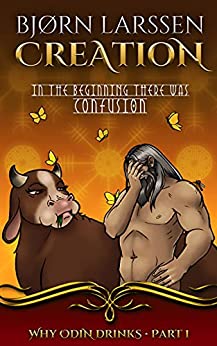
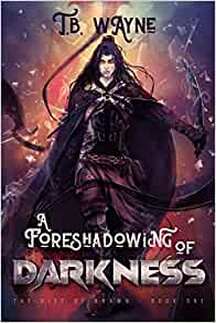
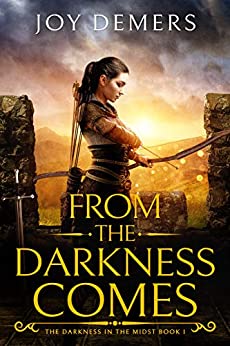
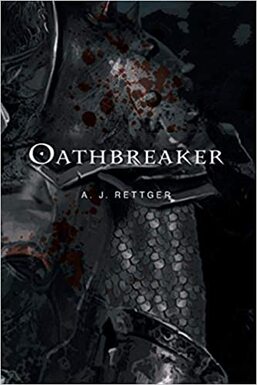
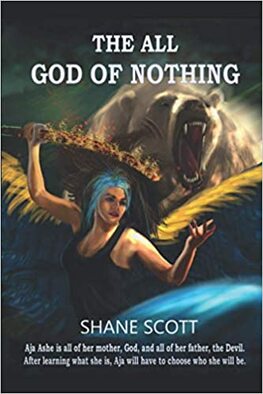
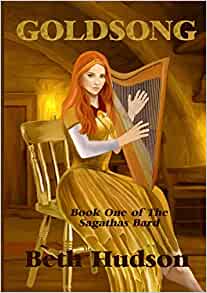
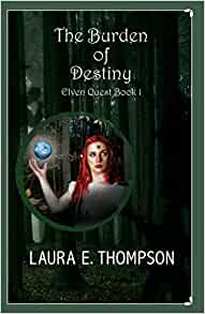
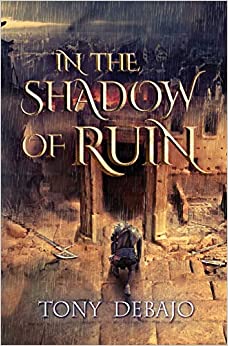
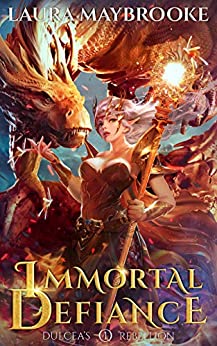
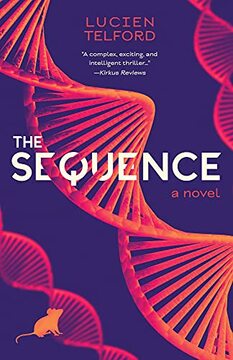
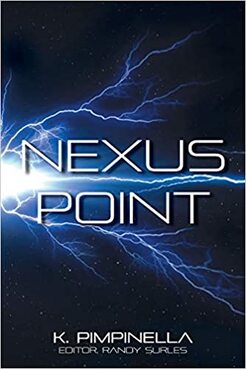
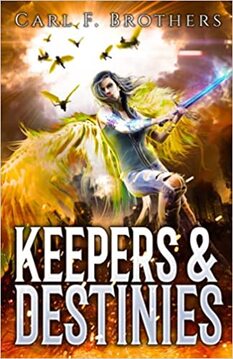
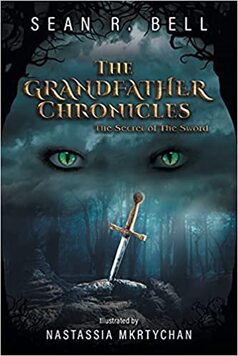
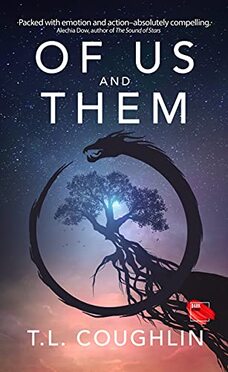
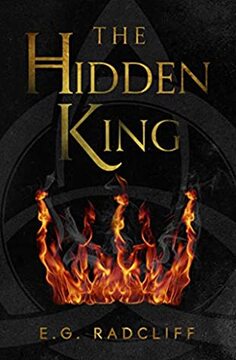




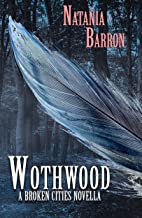











 RSS Feed
RSS Feed
